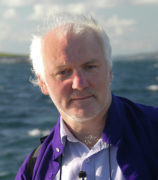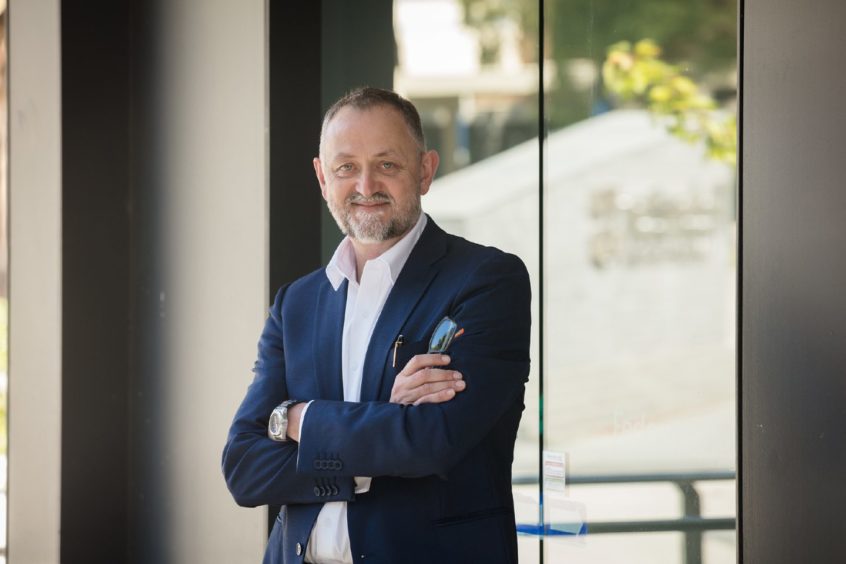I see that the new Principal and Vice-Chancellor of the University of the Highlands and Islands, Professor Todd Walker, said he wanted to get rid of what he calls ‘vanity courses’.
Whatever can he mean? Is it that one in Beauty Therapy and Leg-Waxing or the other one in Viking Studies…? Maybe one day the good Professor will tell us, once the reverse gear is crunched?
The UHI has been one of the undoubted successes of the wider Gàidhealtachd over the past 30 years or so, finally offering a generation the choice of studying at home rather than getting that slow ferry to the mainland or the bus or train to the south. Mostly never to return.
I was brought up in a place and at a time when schooling finished at 16. If you wanted to learn beyond that you had to leave my native island of South Uist for the bright lights of Fort William, or if you were from North Uist, the even brighter lights of Portree or Inverness. You were basically educated out of your native land, people, language and culture.
University was another galaxy away. Aberdeen if a guid snell wind tempted you, or Glasgow if the Highlanders Institute and the Park Bar were the golden magnets. I chose Edinburgh, thanks to the free bursaries of the time.
Shocking to limit the possibilities of education to utilitarianism
Although many of the 13 individual colleges and research institutes that make up the University of the Highlands and Islands have been long established, the UHI project itself is less than 30 years old. Set up as an effort to root tertiary education in the Gàidhealtachd, it was only granted university status 10 years ago. Its campuses, ranging from the Argyll College in Dunoon to the NAFC Marine Centre in Scalloway, are a model of modern devolved, learning.
But good as making a Harris Tweed jacket is, surely it’s equally good to study the writings of Socrates, to widen your knowledge and vision.
So it’s pretty astonishing to find their principal and vice-chancellor narrowing and monetising that vision. Of course I clearly understand where he’s coming from: like all of us, he wants courses which lead to jobs, though for the leader of an academic institution to limit the possibilities and realities of education to utilitarianism is pretty shocking.
Like everyone else, I very much regret the way in which, over the past generation or two, technical education has been overlooked. At one time, Duncraig Castle College near me here in Wester Ross ran hugely successful full-time courses where young men and women were trained in vital skills ranging from cooking to peat cutting. Perhaps a tad more practical than the degree I managed in political theory. The same with Lewis Castle College in Stornoway, where you can still do a splendid course in essential navigation and seamanship as well as a braw course connected to the making of Harris Tweed.
But good as making a Harris Tweed jacket is, surely it’s equally good to study the writings of Socrates, to widen your knowledge and vision. I know the tweed jacket will (probably) keep you dry and warm, but the songs of An Clàrsair Dall from the 18th Century have equal practical value – his old words will tell you much about greed, land ownership, language loss, culture and community, and these things seem to me to be as real and necessary as any Non-Vanity Course.
Covid has reminded us of the importance of arts
Of course Professor Walker is just sipping from the utilitarian trope – or is it trough? – of the 21st Century. That if something doesn’t get you a job at the end it’s more or less worthless. That if it doesn’t lead to commercial, or financial, or monetary, or economic gain it might as well be ditched. As if man could live on bread alone.
Surely if Covid has reminded us of anything it is that people matter more than anything else. That community matters. What has sustained us through the dark times? Certainly the expertise of scientists and the care and service of the health profession. But also the books we’ve read, the music we’ve listened to, the art we’ve enjoyed.
And how bare and empty our lives are without those things. Without our neighbour calling in to say hallo. Without being able to see or hug or parents or children or friends. Without being able to go to concert or ceilidh to sing together. Without being able to go to church or a cafe to catch up with each other’s news.
All those unprofitable ‘vanity courses’ which are the ones that really matter at the end of the day. Art and literature and music and Viking sagas and leg-waxing, for example.
Angus Peter Campbell is an award-winning writer and actor from South Uist


